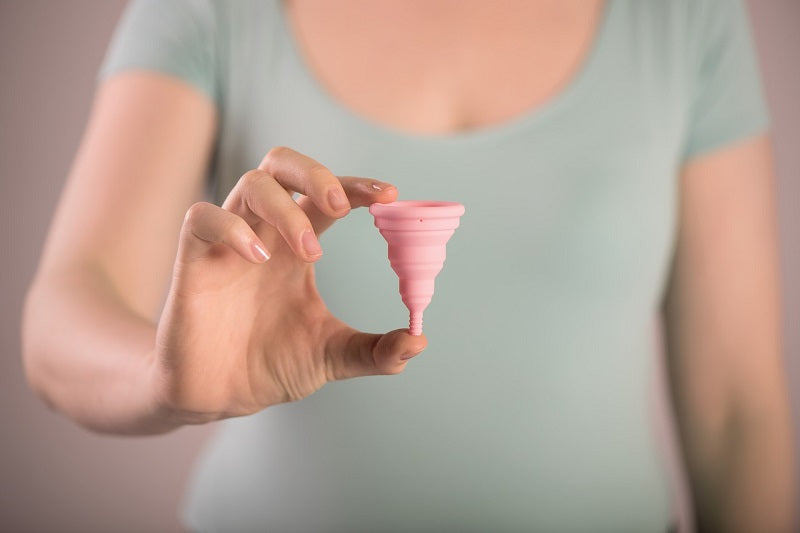Have you heard about menstrual cups and feel intrigued but a little scared to give them a try? Keep reading for all the facts, tips and tricks you need to know.
What is a menstrual cup?
A menstrual cup, also known as a luna or a moon cup, is a bell-shaped device that’s inserted into the vagina like a tampon in order to 'catch' your flow. They give you a comfortable, safe, odourless and eco-friendly way to manage your menstrual cycle.
Menstrual cups are made from hospital-grade silicone and are chemical, latex and BPA-free, making them completely safe, reusable and long-lasting. Plus, being able to use your cup for several years means BIG savings on sanitary products for you and much less waste for Mother Earth.
While many women are interested in using a cup and reaping its benefits, they are a little hesitant to do so. Some fear that their flow might be quite heavy while others worry that the process of insertion and removal can be quite daunting or too messy. Let me assure you – the entire process is simple, clean and swift. It just takes a few tries to get it right!
What are the benefits of using a menstrual cup?
Menstrual cups can be left in the vagina for up to 12 hours and are inserted and removed in seconds. Interestingly many women with heavy flows report less pain and a lighter bleed when using a cup compared to pads and tampons.
"I have to change super-plus tampons every hour or so the first couple days of my bleed. But with the cup, I only change every 4-6 hours and am good overnight."
As with anything new, there can be a learning curve when transitioning from pads or tampons. However, don't be discouraged – the cup is simple and easy to clean. There are even different sizes available and also various folds possible to help you find which insertion feels best.
Menstrual cups also help you avoid the irritation or dryness sometimes associated with sanitary pads or tampons. Once it is in, you barely feel or notice it at all except for the soft stem which sits just inside the entrance of your vagina.
All that being said, the best thing about menstrual cups is that they connect you more to your body and your cycle. How? Well, you have the opportunity to monitor how much blood you're losing and can see the quality of your blood as well. This might be too much for some women but learning about the colour, quantity and texture of your bleed can give you great insight into your hormonal and overall health.

How to use a menstrual cup
- Boil your cup in hot water before (and after) use. Add a couple of drops of tea tree oil to the water as an extra sanitary precaution.
- After your cup has cooled, sit on the toilet or lift one leg onto a ledge to aid insertion.
- Breath and relax your pelvic floor, then take your cup with clean hands, fold it, and insert into your vagina. Once you let go, the cup will open and suction inside your vagina. You can push it a little further up at this point if needed.
- To remove, simply grab hold of the stem and pull gently. You may need to insert a finger inside to release the suction. Then, simply empty your cup into the toilet bowl or shower.
Your cup can be changed anywhere; just ensure your hands are clean beforehand and use toilet paper to wipe it down before re-insertion. When your menstrual period is over, boil your cup again and store safely in a protective bag.
An added note on menstrual cups
Women with a tilted pelvis might want to try the FemmyCycle or Blossom cup which has softer silicon. Leaks are more frequent when the cervix moves lower during menstruation or if the menstrual cup has been inserted too high in the vagina. For women with a naturally lower cervix, there are shorter cups available.
NOTE: Painful periods, heavy bleeding and symptoms associated with monthly cycles are not normal. They are common however this does not mean that you need to suffer. Take our online assessment as a starting point and start to understand what is happening in your body and how to take proactive steps to balance your hormones.
REFERENCE:
van Eijk et al. (2019). Menstrual cup use, leakage, acceptability, safety, and availability: a systematic review and meta-analysis. The Lancet. Public health, 4(8), e376–e393.
https://www.ncbi.nlm.nih.gov/pmc/articles/PMC6669309/








Leave a comment
This site is protected by hCaptcha and the hCaptcha Privacy Policy and Terms of Service apply.